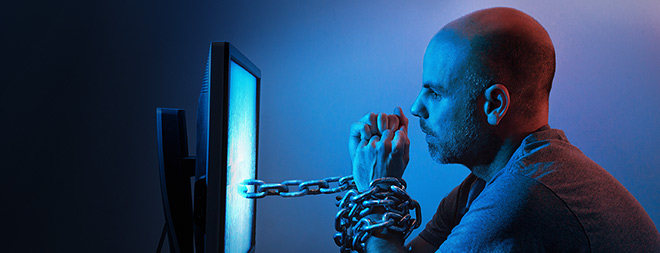Posted 1st August 2016

Sexual Compulsivity Increasing In All Age Groups
The title makes for interesting reading: it immediately suggests that today's society is more sexualised than at any other time in history. Sex and sexual imagery appear across all media on a seemingly increasing basis and not only at adult level, but for the young children too. Added to this, modern culture has exposed us to a sense of entitlement and instant gratification.
Sexual compulsivity counselling can be an integral recovery resource.To ask for information or to arrange an appointment,
please call Kenneth Demsky, PhD on 020 7435 6116
or use the contact form below
From an early age children are habitually exposed to television, advertising, film and internet resources that feature their favourite pop stars, movie stars and personalities in a barely shielded provocative way. Cosmetics on a young girl a few decades ago would have been lamentable, today it's commonly applied. Parents are electing to allow children to wear heels and rather more revealing clothing than previous generations were permitted to. Children are mini grown ups – do we really want to see children in that way?
Watch any music video and there is a heady mixture of music, posing and sexualisation, all of which are deemed to be normal by our children and teens. Sexual education is being sought by teens from the Internet which we know is a mixed bag of tricks. Counsellors have reported patients in their twenties who are happier masturbating to porn than having sex with a partner. The porn sites demand nothing of the user, unlike a partner. Sex sells, as the old adage says, but is our relaxed attitude to sexualisation and a lack of censorship costing us as a society?
A government study found that sexting was not usually a threat to a child from an adult stranger, but from a fellow child, as was the risk of sexual harassment, groping and the objectification of girls.
At all ages pornography addiction, also called sexual compulsivity, is on the increase, as people strive to feed a hunger or rather to find a way to ignore and not deal with less desirable matters in their lives.
Research has shown that some groups of people are more at risk to develop sexual compulsivity:
- Individuals with relationship issues.
- People suffering from financial difficulties.
- People who experienced abuse during their youth.
- Mental health issue sufferers.
- Individuals with unemployment or job issues.
- People who have addictions in their family already.
The internet has become a vital tool in sexual compulsivity, simply because it is apparently anonymous, caters to an individual's sexual orientation and wishes and is always available at a relatively low cost to the addict. While the Internet is an excellent resource that cannot be held accountable for the easy access to porn, research shows that it has impacted on sexuality and sexualisation. As with many great inventions there is a flipside, it is quite easy to fall in to a dependence on the internet sex/pornography industry.
Some pornography addicts may feel that they are merely taking a healthy interest in sex, but this might not be the case. Professional counsellors would look at the amount of time spent on pornography, whether secret and compulsive behaviours are employed and if porn is the subject most prevalent in the person's mind and in conversational topics. Also, it is important if a porn user experiences restlessness when denied access to pornography and if the tenor of the material watched has intensified from soft to hardcore porn to get the maximised internal reaction. This indicates that there has been an alteration in the brain chemistry and the brain is demanding more and more of the porn to satisfy its need for the chemical payoff. Sufferers can effectively become lost in the search for the next "hit" in an almost trance-like state.
If there is a suspicion that an activity has become a form of sexual compulsivity, then it is vital to seek help to reduce the addiction which is often accompanied by a change in attitude and behaviour towards a partner and family. For example, to many internet porn is infidelity, if a viewpoint suddenly shifts away from a previously held stance there must be a reason why.
Simply telling someone close is a start to the end of secrecy, there'll be two people aware and fighting the pornography addiction. Moving a PC to a more public room will deter the addict from accessing pornography sites. Sexual compulsivity counselling can be an integral recovery resource. A therapist is never judgemental, but has the expertise and the toolkit to help sufferers strengthen their healthy coping techniques and coordinate the restoration of normal behaviour that will claim back all the hours that have been ebbing away in the pursuit of chemical hits. If you fear that you suffer from sexual compulsivity you're not alone and help is available.
Posted 1st August 2016
To ask for information or to arrange an appointment,
please call Kenneth Demsky, PhD
on 020 7435 6116
or send an e-mail to
enquiry@drkennethdemsky.co.uk
